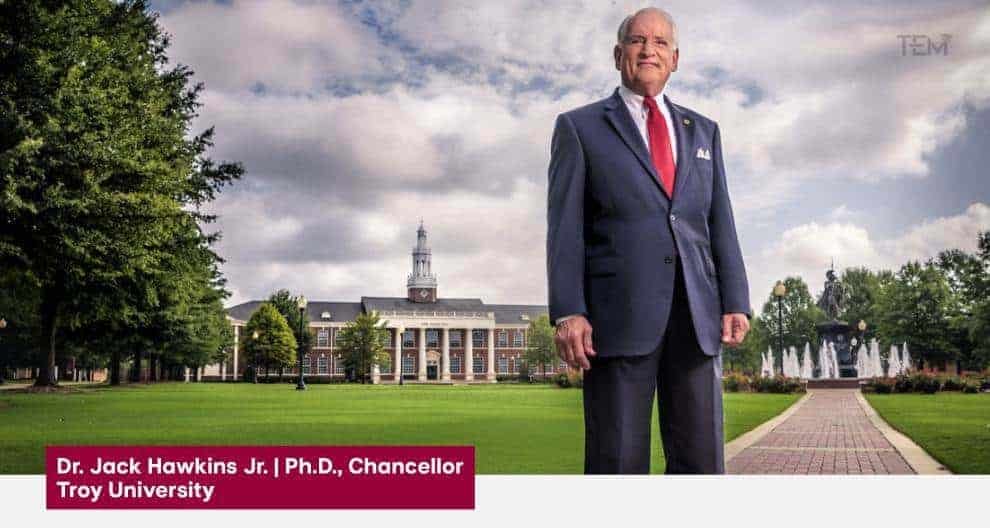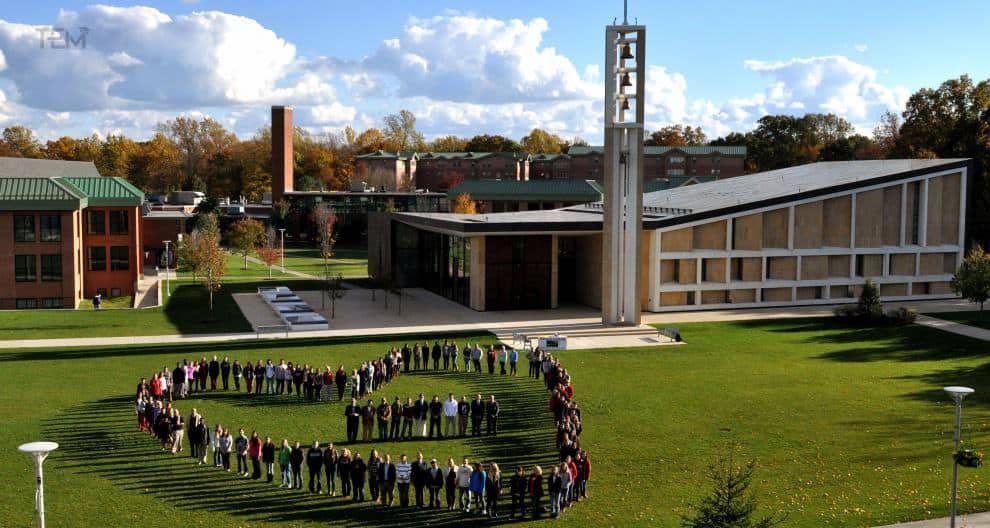By Jack Hawkins, Jr., Ph.D.
The future of American public higher education is spelled J-O-B-S. Universities must pay greater attention to preparing students for the marketplace that awaits them after graduation. This will better serve both our students and society at large.
We live in a time of constant change driven by technology. For example, the McKinsey Global Institute projects that automation could affect 30 percent of workers worldwide in the next 20 years. Likewise, a World Economic Forum study predicts that machines will perform 42 percent of tasks in the workplace by 2022, compared to about 30 percent today. This will lead to about 75 million jobs displaced. The good news is the study predicts more than 130 million new jobs will emerge in this changing workplace.
Many legislators and policymakers believe higher education is not doing enough to ensure the United States has an adequately trained workforce to meet the challenges brought on by changing technology. The charge has some merit, and some universities are working to make courses of study more relevant to meet marketplace demands.
Universities are under increasing public pressure to report employment outcomes of their graduates as a measurement of success. This is a new level of scrutiny for public universities. It is no stretch to predict that one day in the near future state appropriations for public colleges and universities will be tied directly to these alumni outcomes.
The best argument, however, for public universities to make employment outcomes a higher priority is this: It’s the right thing for our students. Further, it fits with the traditional mission of state institutions.
Public universities have long been the source of trained professionals for America’s workforce, and a successful career is the primary motivation for most students who begin the college journey. Unfortunately, survey data show the general public is losing faith that higher education is keeping this implied promise.
A Gallup poll taken in 2010 revealed 81 percent of respondents were confident that higher education was worth the investment of time, money and effort. By 2018 that number dropped to 48 percent. For the first time in history, a majority of Americans surveyed lack confidence in our colleges and universities.
While there may be many reasons for this trend of declining confidence, I believe it boils down to two key factors:
- The increasing cost of higher education, including the burden of student debt; and
- The perception that a college degree is no longer a sure ticket to financial success and upward social mobility.
There’s no doubt that rising student debt is the scourge of U.S. higher education. Such debt now tops $1.62 trillion, more than all credit card debt combined. More than 45 million borrowers are paying off an average debt of approximately $35,000. The average student loan debt in Alabama mirrors the national average of $35,000. I am proud the Troy University average is “only” $18,971, but it is still a heavy burden for graduates just starting their careers. I am also proud that this spring, our Board of Trustees voted to freeze undergraduate and graduate tuition for the second straight year.
At Troy University, we take student outcomes seriously. Many of our most popular academic programs are direct pipelines to employment, including accounting, management, education, nursing and journalism. As we track where our graduates are working, as well as job-placement rates of specific academic programs, we’re discovering a large percentage of our graduates excelling in the workforce.
For example, we identified 14,339 graduates of our College of Business, and determined 92 percent of them are employed in their major field. In our College of Health and Human Services, TROY graduates in nursing and athletic training approach a 100 percent job placement rate, while in fall 2018 23 TROY graduates entered medical school.
In addition, we realize the value of practical experience to prepare undergraduates for the marketplace. Every academic major at Troy University now offers an internship option. Our ultimate goal is for every TROY student regardless of major to benefit from an internship.
Let me emphasize—we do not overlook traditional areas of study such as English, history, math and fine arts. These disciplines teach analytical, communication and critical-thinking skills that employers seek. They also prepare our graduates to be life-long learners!
Some in higher education may not welcome policymakers “grading” their institutions based on the financial success of alumni. We believe this is a natural response in an era of declining public confidence. Moreover, consumers of higher education are more sophisticated than ever before. It’s common for prospective students and the parents who pay the bills to question whether their chosen field will lead to a good job.
While we must continue to educate our students to excel in the world around them, we must also prepare them for the world of work. Accomplishing both missions is not only the right thing to do, it will also help restore confidence in our colleges and universities.
Read Full Post The 10 Most Visionary Education Leaders of 2020

